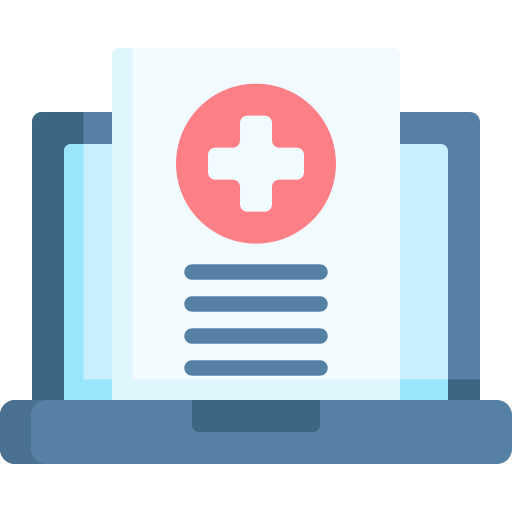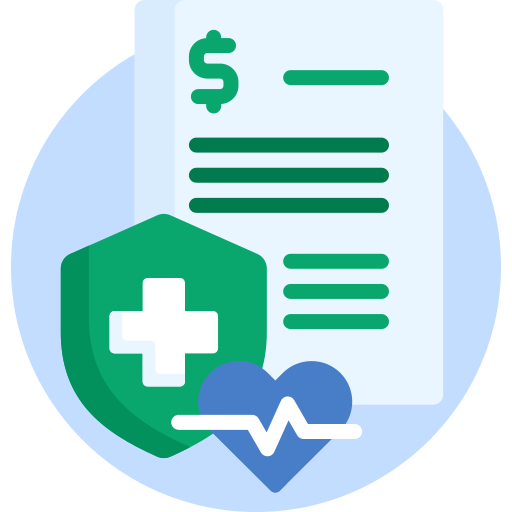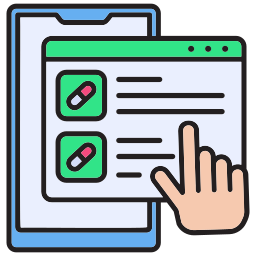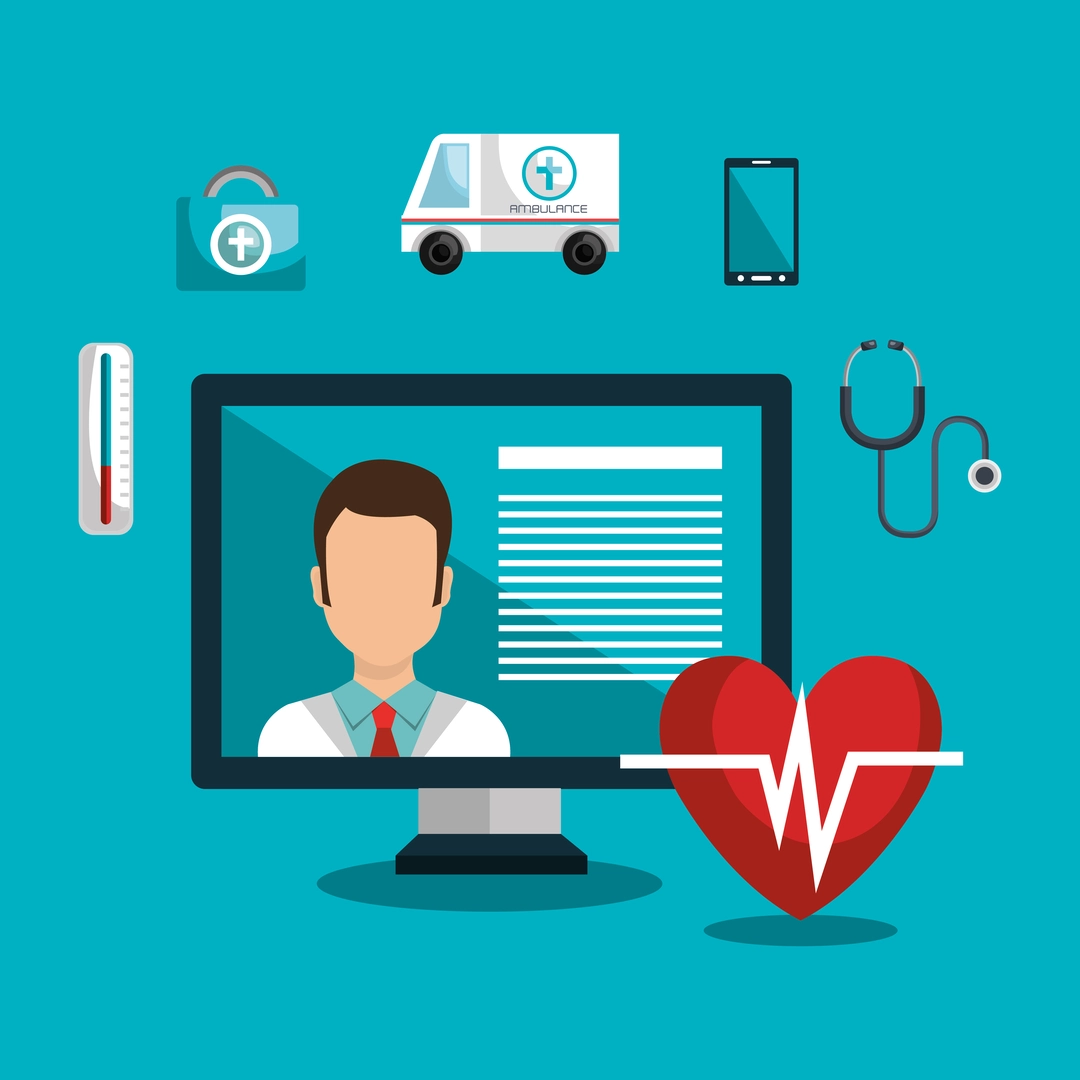The worldwide EHR integration software market has grown consistently at a 5.4% CAGR, with sales reaching $27.1 billion in 2023. Projections show that this growing trend will continue. The market is estimated to earn $28.6 billion in 2024 and $30.1 billion in 2025.
EHR integration software is important in modern healthcare to connect with various systems, enable seamless data sharing, and minimize manual tasks. This technology ensures that patient information can be easily accessed by doctors and specialists across different platforms, which eliminates the need for outdated methods like paper trails or faxing (yes, faxes still stubbornly exist in healthcare!).
When a new provider is involved, EHR integration allows them to instantly view a patient's complete medical history, resulting in more informed and quicker decisions.
In addition to improving communication among healthcare providers, EHR integration reduces redundant tests, human errors, and delays in treatment. It’s a game changer for improving healthcare outcomes, as professionals gain a full, detailed picture of a patient's medical past, helping them anticipate potential issues.
Epic EHR integration is one of the top solutions that many healthcare organizations implement, known for its ability to streamline operations. The benefits extend to both administrative and clinical functions, reducing billing headaches and errors while increasing overall efficiency.
What Does EHR Integration Achieve?
According to Gartner report, the ideal EHR has improved in order to serve medical professionals and patients better. Advances in genetics, increased clinical automation, higher reliance on analytics, a shift from data to information, and increased integration of different clinical systems will all lead to more tailored, proactive, and coordinated treatment.
Here are a few benefits we can achieve with EHR integration software:

Improved Patient Care
EHR integration software allows healthcare providers to access complete patient information, ensuring care decisions are made with the most accurate and up-to-date data. With fewer gaps in communication, medical errors are reduced, and patient care quality improves overall. Doctors can now focus more on treatment than chasing paperwork.
Boosted Efficiency
Streamlined workflows are a big win with EHR integration. It helps reduce communication delays between healthcare teams, freeing them from the endless loop of manual record-keeping. With less time spent on administrative work, more energy goes into patient care, improving overall efficiency without the hassle.
Reduced Costs
EHR integration software can trim costs significantly. For one paper usage has become a relic of the past, saving trees and money. Billing accuracy improves, which cuts down on payment disputes and missed reimbursements. Plus, with fewer human errors, healthcare providers see fewer unnecessary expenses.
Time Saved and Money Kept
One EHR integration software takes efficiency to another level by offering up to 60% integration cost savings. That’s not all—getting to market becomes up to 50% faster too. Imagine skipping the long, drawn-out onboarding process and getting your system up and running!
Simplified Healthcare Operations
EHR integration doesn’t just organize patient data—it simplifies everything from appointment scheduling to billing and reporting. Automation reduces manual input, while systems talk to each other without hiccups. This eliminates bottlenecks, creating smoother day-to-day operations and happier healthcare staff.
The benefits of EHR integration software continue to push the healthcare industry towards greater efficiency. In today's world, mastering EHR integration best practices is essential, especially with the unique Epic EHR integration challenges providers face.
Top 5 Best EHR Integration Software Companies
1️⃣ HealthConnect CoPilot
HealthConnect CoPilot offers a practical and user-friendly approach to EHR integration, making healthcare data management more efficient for providers and organizations. With a strong focus on simplifying complex processes, their solutions allow healthcare teams to easily manage patient data, ensuring smoother workflows without overwhelming users with technical complexities.
The company has gained a solid reputation in the industry for delivering reliable solutions that address the real needs of healthcare providers. Offering intuitive tools and expert support, it continues to positively impact how healthcare data is organized and accessed, ultimately improving the overall experience for providers and patients.
Key Features and Benefits:
HealthConnect CoPilot offers powerful solutions for bridging gaps in healthcare integration. The platform integrates EHRs using HL7 V2 and FHIR APIs. This integration ensures easy access to patient data across various EHRs, enhancing communication and care coordination. Additionally, our system supports connections with wearable devices through APIs like Google Fit and Fitbit, enabling personalized health and wellness management insights.
The platform also utilizes advanced generative AI technologies to analyze structured and unstructured data, providing valuable insights that inform decision-making and treatment plans. With features like HIPAA compliance and real-time data synchronization, it ensures the security and accuracy of patient information, ultimately improving patient outcomes and operational efficiency.
Epic Approved Vendor:
HealthConnect CoPilot proudly stands as an Official Epic Approved Vendor, meeting their rigorous standards for quality and compatibility. Our unique offerings include access to private services for interoperability requests, allowing tailored read-and-write operations that are not widely available.
It streamlines your journey with expedited go-to-market (GTM) support, guiding you through the complexities of joining the Epic vendor program while providing sandbox setups and ready Epic connectors. With extensive knowledge in healthcare technology and Epic systems integration, we ensure compliance with all technical requirements. Ongoing support, including Epic Hyperdrive testing, guarantees smooth and efficient operations for your healthcare applications.

2️⃣ Cerner EHR Integration
Cerner EHR Integration stands out for offering different integration solutions designed to meet the unique needs of healthcare providers. Known for its scalability and adaptability, Cerner’s software enables hospitals, clinics, and healthcare organizations to integrate various systems effectively. The platform ensures patient data flows smoothly between applications, improving access and operational efficiency.
With Cerner’s extensive experience in healthcare technology, the software is trusted to handle the complexities of electronic health record (EHR) systems. It supports a variety of healthcare settings, helping organizations meet their unique operational needs while maintaining compliance with industry standards and regulations.
Key Features and Benefits:
Cerner EHR, part of Oracle Health, serves as a centralized hub for patient data, providing healthcare providers, nurses, and authorized staff access to critical information such as medical history, allergies, medications, and test results. The integration of Cerner EHR facilitates smooth communication between your systems and Cerner EHR, utilizing FHIR and HL7 APIs to automate data exchange. This eliminates manual entry, reducing time and errors while ensuring data accuracy and accessibility.
The benefits of integrating with Cerner EHR include improved patient engagement through a unified healthcare experience and reduced administrative burdens. By streamlining clinical workflows and allowing real-time access to lab results, healthcare providers can make informed decisions that ultimately enhance patient care.
3️⃣ Charm EHR Integration
Charm EHR Integration is designed to simplify electronic health record integration for smaller practices, offering a user-friendly solution that removes the complexities typically associated with EHR systems. Known for its modern approach, Charm focuses on making healthcare technology accessible and manageable without overwhelming users with complicated processes. This software makes it easier for healthcare providers to streamline their workflows and manage patient data efficiently.
The integration process is straightforward, ensuring that healthcare teams can focus more on patient care rather than dealing with cumbersome technical issues. Charm’s platform is particularly well-suited for smaller practices looking to implement an EHR system without the usual hurdles and lengthy setup times.
Key Features and Benefits:
Charm EHR is a widely used electronic health record system that offers comprehensive functionalities for managing patient data, scheduling, and generating reports. Its ability to integrate with AI-powered tools sets it apart, providing healthcare providers with advanced capabilities. It streamlines data flow between Charm EHR and other applications using the FHIR and HL7 APIs, ensuring timely communication and data accuracy.
The integration enables real-time access to patient data, supporting informed decision-making and improved patient care. Data standardization ensures consistency and reliability, while automated data exchange reduces manual entry errors. With enhanced security protocols and scalability, organizations can adapt to evolving needs, optimize resource allocation, and ultimately improve overall efficiency in healthcare delivery.
4️⃣ iKnowMed G2
iKnowMed G2 is an EHR integration software designed specifically for oncology practices. Its specialized approach caters to the unique requirements of cancer care, making it an ideal solution for oncologists. With features focused on managing complex treatments, chemotherapy protocols, and patient records, iKnowMed G2 streamlines clinical workflows and improves care coordination in oncology settings.
By addressing the intricacies of cancer treatment, iKnowMed G2 helps healthcare providers deliver more precise care. The software offers advanced tools for treatment planning, patient monitoring, and documentation, ensuring that oncology practices can operate efficiently while meeting the specific needs of their patients.
Key Features and Benefits:
iKnowMed G2 serves as a comprehensive EHR system specifically designed for oncology practices. It provides a secure platform to manage patient data, streamline workflows, and improve care coordination, which can lead to better decision-making and potentially better patient outcomes. The integration with HealthConnect CoPilot ensures that your applications connect efficiently with iKnowMed G2, utilizing industry-standard FHIR and HL7 APIs for secure healthcare data exchange.
The benefits of integrating iKnowMed G2 are substantial. Modernized workflows and automated procedures lead to increased productivity, while improved patient care stems from better data flow, which supports informed healthcare decisions. Additionally, reduced operational costs stem from minimized data redundancy and fewer manual tasks, allowing healthcare organizations to allocate resources more effectively.
5️⃣ MOSAIQ EHR
MOSAIQ EHR offers a solution aimed at improving healthcare management by streamlining electronic health record (EHR) integration. Designed to support various healthcare settings, it simplifies the management of patient data and clinical workflows, making it easier for healthcare providers to deliver high-quality care. With a focus on ensuring accurate documentation and efficient data flow, MOSAIQ helps reduce administrative burdens and improve overall patient outcomes.
The platform is built to make operations more efficient, from scheduling to treatment management. By integrating with other clinical systems, MOSAIQ allows for smoother coordination between departments, ensuring that healthcare professionals have access to the right information when they need it.
Key Features and Benefits:
MOSAIQ EHR offers an efficient way to streamline clinical workflows, particularly in oncology. Its integration capabilities ensure secure healthcare data exchange using industry-standard FHIR and HL7 APIs. This allows for connection between MOSAIQ and other healthcare IT systems, facilitating improved care coordination and data management. The system excels in treatment planning and management, particularly for radiation therapy, and includes advanced features like diagnostic imaging integration, oncology-specific data management, and survivorship care.
In addition to offering secure, role-based access control, MOSAIQ supports modern healthcare workflows through automated data exchange and increased operational efficiency. With its API management features, healthcare organizations can integrate with other oncology systems, improving data accuracy and reducing healthcare costs.
Conclusion
When looking at the top five EHR integration software companies, Epic takes the lead with its deep integration capabilities, making it a favorite for healthcare giants. Cerner stands tall with its user-friendly interface and flexibility, while Charm EHR offers simplicity for smaller practices with big ambitions. iKnowMed G2 focuses on oncology care, streamlining data for cancer treatment facilities. Lastly, MOSAIQ EHR serves the radiation oncology space, specializing in advanced data integration for highly specific needs.
HealthConnect CoPilot deserves a spotlight here. Its ability to cut EHR integration costs by up to 60% while speeding up the go-to-market time by 50% is impressive. For healthcare organizations, this means fewer headaches and faster results. In an industry where efficiency is everything, finding the right EHR partner can make a big difference, and HealthConnect CoPilot seems to offer a helping hand to tackle those integration challenges head-on.
- Who are the biggest EHR companies?
The biggest EHR companies include Epic, Cerner, Allscripts, MEDITECH, and NextGen Healthcare. These companies provide widespread solutions for healthcare organizations of all sizes.
- What is the most popular EHR system?
Epic is considered the most popular EHR system, widely adopted by hospitals and healthcare providers for its extensive integration capabilities and user-friendly interface.
- What is an EHR integration?
EHR integration refers to the process of connecting electronic health record systems with other software or platforms. It allows seamless sharing of patient data, improving workflow efficiency and care coordination.
- Who are the EHR manufacturers?
EHR manufacturers include companies like Epic Systems, Cerner Corporation, Allscripts, MEDITECH, and NextGen. They develop software that manages and stores patient health records digitally for healthcare providers.

Pravin Uttarwar, CTO of Mindbowser
As the CTO of Mindbowser, a healthcare-focused software development company, I am dedicated to delivering cutting-edge digital solutions that transform patient care and operational efficiency. With over 16 years of experience and as an MIT alumnus, I specialize in healthcare interoperability, FHIR-compliant systems, and AI-powered platforms, crafting scalable products and architectures tailored to the unique needs of healthcare providers and enterprises.
I have spearheaded the development of over 100 products and platforms, guiding them from concept to full-fledged solutions. My expertise extends to scaling remote tech teams, driving EHR integrations, and building secure, cloud-native healthcare solutions. By shaping technology visions and roadmaps, I help clients achieve long-term growth and success in the rapidly evolving healthcare landscape.
HealthConnect CoPilot enabled us to access real-time patient health data through integration with Apple HealthKit, enhancing care delivery while maintaining HIPAA compliance. This led to personalized care and improved outcomes for patients.

AI-enhanced Obstetrics Clinical Decision Support Platform
HealthConnect CoPilot's integration with Epic's Hyperspace has transformed our workflow. Automated post-delivery examinations and HL7 protocol use ensure accurate updates to Epic. Their expertise empowers informed decision-making in childbirth

Top Provider for Customized Healthcare Solutions
HealthConnect CoPilot's helped us to integrate with leading tracking devices such as Apple Watches and Fitbit. This integration enables effortless syncing of health data, providing users with real-time insights displayed directly on our flagship products: smart mirrors and digital calendars.

A Provider of Customizable Display Solutions
Post a comment Cancel reply
Related Posts
FHIR Versions: The Past, The Present & The Future
The Fast Healthcare Interoperability Resources (FHIR) standard has revolutionized healthcare data exchange, enabling seamless interoperability…
What Are CDS Hooks? A Simple Guide for Healthcare Providers
CDS Hooks are changing how clinical decision support (CDS) works inside EHRs, bringing real-time, context-aware…
The Challenges and Benefits of EHR Integration for Health Tech Companies
As digital health companies continue to innovate and develop cutting-edge healthcare solutions, one of the…
Streamlining Behavioral Healthcare with Epic EHR Integration
Behavioral healthcare providers are facing an increasing demand for streamlined systems that can integrate multiple…
How One Maternal Health Startup Is Revolutionizing Charge Capture in Epic?
Helping Moms Shouldn’t Involve Wasting Time or Resources Maternal health startups are doing some of…
EHR Integration for Diabetes Management: A Scalable Solution for Modern Healthcare Platforms
Managing chronic diseases like diabetes requires consistent care, personalized treatment, and uninterrupted access to patient…








